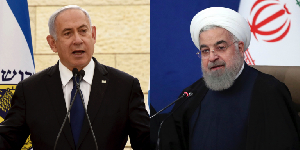The naira dipped for the third consecutive day as it closed trading on Wednesday at N1,473.29/$.
From the start of the week, the Nigerian currency had struggled against the American dollar at the official Nigerian Foreign Exchange Market, data from the Central Bank of Nigeria indicated.
It started the week at 1,457.51/$, weakened to 1,463.23/$ on Tuesday, and dipped by N10.06, or 0.69 per cent, on Wednesday.
At the parallel market, the currency closed trading at 1,500.00/$ on Tuesday, according to CardinalStone. However, on Wednesday, it appreciated to close trading at 1,488/$.
Experts at Cowry Assets Management Limited blamed diminished appetite for the depreciation of the naira.
The depreciation comes on the heels of the naira hitting a 10-month high in the past week as it closed trading at 1,455.17/$, the strongest it had been since December 2024.
The current trading pattern of the naira is a different shift from the projections of analysts who had anticipated that the currency would be stable on the back of interventions by the Central Bank of Nigeria and foreign inflows.
The PUNCH reported that analysts had forecast a positive outlook for the naira; however, Cowry Assets Management Limited, in its weekly report, warned that “rising import demand or weaker dollar inflows could slow further gains. Oil prices may remain under pressure due to higher supply, but any rebound in global demand could offer some support to Nigeria’s external earnings conditions, underpinning optimism for FX market stability; volatility in global oil markets may keep investor sentiment cautious.”
The external reserves have continued their steady climb. As of Monday, it stood at $42.63bn, up from $42.59bn on Friday.
Meanwhile, the Governor of the Central Bank of Nigeria, Olayemi Cardoso, at the G24 media briefing on the sidelines of the ongoing IMF/World Bank Annual Meetings in Washington, said that the naira is now “more competitive” after reforms and currency stabilisation efforts.
He said, “We were able to create resilience and buffers against potential shocks. In terms of anchoring expectations, we found that those who followed the Nigerian economy were fairly comfortable,” he said.
Cardoso added that the currency’s strength lies in domestic production. “Nigeria is completely restructuring its economy, and a competitive currency is helping drive that transformation,” he added.
Business News of Thursday, 16 October 2025
Source: www.punchng.com













